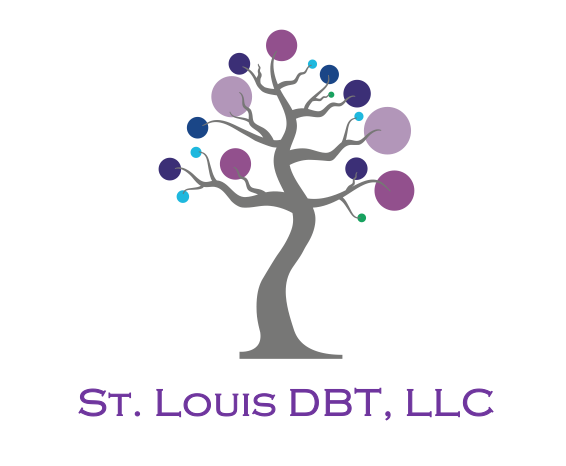About St. Louis DBT
Our Mission
St Louis DBT is dedicated to offering and enhancing the practice of evidence-based therapies aimed at improving the mental health of adults and adolescents in the St. Louis area. To achieve our mission, we:
Serve individuals and families struggling with emotional cognitive and behavioral challenges
Offer model-adherent behavioral therapies, including CBT, DBT, Prolonged Exposure and EMDR
Train clinical social workers, counselors and therapists in evidence-based practices such as DBT
Collaborate with other health care providers and act as an advocate for our client populations
Consult with area agencies on best practices in the treatment of Depression, Anxiety and Borderline Personality Disorder
Our Values
At St Louis DBT we operate by a set of values supported by DBT assumptions about our clients. We value:
the self-worth of all people
providing high-quality, affordable, person-centered services
serving with dignity, compassion, integrity, cultural sensitivity, and an understanding of the behavioral health challenges people face.
Our Philosophy (DBT Assumptions)
Our clients are doing the best they can.
At St Louis DBT, we assume clients are doing the best they can. We understand you will make progress at your own pace. Through the process, our goal is for you to feel heard and understood.
Our clients want to improve.
We assume our clients want to get better. We understand asking for help takes courage. It is not easy to acknowledge you are not living the life you desire. We firmly believe all of our clients come to us out of a desire to improve.
Our clients can do better, try harder, and be more motivated to change.
We believe clients are doing the best they can and they can do better, try harder and be more motivated to change. This is one of the underlying dialectics of DBT. Both are true. We must accept clients as they are today and motivate them to change over time.
Our clients may not have caused their own problems but they have to solve them anyway.
Just like a person who steps off the curb and gets hit by a car, our clients may not have caused their problems but still have to solve them. We understand the frustration and unfairness clients can feel even as we help them accept responsibility for finding a way out of their pain
The lives of our depressed and anxious clients are painful as they are now being lived.
No one chooses to be depressed, anxious or suicidal. We know the pain our clients describe is real. We can see it in their faces and how they carry themselves. We can hear the pain in their stories. We strive to provide compassionate, empathetic care.
Our clients must learn new behaviors in different situations in their lives (e.g. home, school, at home and in social situations)
Learning new behaviors is like learning to be an effective communicator. No matter how effective you are, you can learn more and become more effective. Through individual therapy, skills groups and coaching calls, we offer a comprehensive set of services to help clients learn and apply new behaviors in all areas of their lives.
There is no absolute truth.
There are at least two sides to every story. Taking a dialectical approach and assuming there is no absolute truth provides space for give and take. .
Starting with the assumption that most people are well-meaning, rather than assuming the worst, reduces misery.
It’s hard to have a productive discussion assuming the worst about another person. We give our clients the benefit of the doubt as we hope they will give us.
Clients cannot fail DBT.
DBT is about being more or less effective, not right or wrong. DBT doesn’t have any tests; it is a set of skills that require practice, practice, practice. Even after practicing a lifetime, there will still be room for improvement. That said, DBT is a robust program, requiring a commitment to living and to practicing skills. It is not for everyone. But just as not all cancer treatments work for all cancer patients, and we do not blame the patient; if DBT does not work for someone, we do not blame the person. Instead we search for another treatment to try.
*Please note we do not have a receptionist, so calls are not answered live. You will need to leave a message with ideal call back times.
